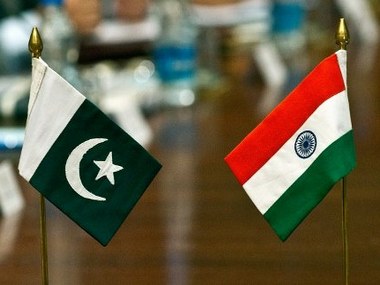India expelled Pakistani High Commission staffer Mehmood Akhtar for spying on 27 October and Pakistan responded on the same day by declaring Surjeet Singh, an official of the Indian High Commission, as persona non grata. There is nothing extraordinary in this diplomatic tit-for-tat — it takes place periodically between many countries — except that in these extraordinary times for India-Pakistan relations the incident has attracted extraordinary attention. The Vienna Convention that regulates the diplomatic interaction between countries prescribes that diplomats and staff working in diplomatic missions should adhere to the laws of the receiving state. Obviously, this rules out espionage. However, almost all countries send intelligence officers to work in their diplomatic missions. These officers generally have a diplomatic or administrative job in the mission but their main task is to gain targeted sensitive information through clandestine human and technical means. [caption id=“attachment_2978398” align=“alignleft” width=“380”]  Representational image. AFP[/caption] Diplomatic missions are kept under surveillance by the counter-intelligence agencies of host countries. A game of shadows goes on all the time. As and when a country catches a diplomat blatantly and unacceptably indulging in the spy game, he is either caught in the act and is ordered to leave or, at times, even without being physically caught is asked to leave. Sometimes this process is undertaken discreetly and is not made public; on other occasions, the diplomat is publically declared persona non grata and is sent home. The expelled diplomat’s country then takes reciprocal action as has happened in this case of Mehmood Akhtar and Surjeet Singh. This incident of mutual expulsions has taken place between India and Pakistan after a decade. But in the 1990s there were numerous such cases. Indeed in some instances, Pakistan behaved outrageously against Indian staffers and in a couple of cases diplomats whom they accused of espionage. Some senior officials felt that India should not retaliate in kind because it had to hold itself to a higher standard. However, on some rare occasions when Pakistan crossed the line and India responded strongly against one of its staffers in Delhi, the Pakistani agencies held their hand for months afterward. A signal of firmness always has a salutary effect on the Pakistanis. It is clear that the Modi government decided to send a clear warning to Pakistan that it was taking this matter most seriously. This is the reason for Foreign Secretary S Jaishankar summoning Pakistan High Commissioner Abdul Basit to the Foreign Ministry to convey India’s displeasure and order the expulsion of Mehmood Akhtar. In the past messages of this nature were conveyed by the concerned Joint Secretary in the External Affairs Ministry to the Deputy High Commissioner, especially in cases of staffers. In diplomacy, the level at which a message is conveyed is itself significant. It is apparent that the government’s strong action is linked to Modi’s present no-nonsense approach towards Pakistan. The Pakistani generals who control their country’s India policy are aware that Modi has upped the ante and are therefore proceeding somewhat cautiously. This has perhaps been the reason why an Indian High Commission staffer was not picked and roughed up before being expelled. That would have been the likely course that Pakistan would have adopted in the 1990s. They may still do that in a few weeks. If that happens then India will have to not merely expel a Pakistani staffer in response but respond far more strongly so that Pakistan realises that India is redefining the rules of the bilateral relationship and will not be too concerned if that impacts on the strength and functioning of the respective High Commissions. Some commentators have asked why India did not hold on to Mehmood Akhtar and forced the release of the former Naval officer Kulbhushan Jadhav, accused of being an Indian spy and of fomenting terrorism, and the Indian jawan Chandu Chavan who is in Pakistani custody. This is not possible. If India had insisted on holding on to Akhtar Pakistan would have picked up an Indian staffer and not released him until Akhtar’s release. The fact is that Missions are governed by reciprocity and it is not possible to “trade” others for Mission personnel. If leverage has to be gained for Jadhav and Chavan then similar persons have to be in Indian custody. That is how the game is effectively played. It does happen sometimes that a superpower gets away with murder as it was in the Raymond Davis case between the US and Pakistan. It is also noteworthy that India did not charge Akhtar with fomenting terrorism or assisting separatists. Those are far more serious charges than espionage. Media reports indicate that Pakistan too has not accused Surjeet Singh of involvement with Baluchi groups. That is the charge leveled against Jadhav and he does not have the luxury of immunity. Hence his case requires not to be confined only to reiteration of requests for consular access. Perhaps and hopefully government is acting behind the scenes for his release even in these difficult times in India-Pakistan ties. The author is former Indian ambassador to Afghanistan, Myanmar and Thailand, and headed the Pakistan-Afghanistan-Iran desk at the Ministry of External Affairs.
India expelled Pakistani High Commission staffer Mehmood Akhtar for spying on 27 October and Pakistan responded on the same day by declaring Surjeet Singh, an official of the Indian High Commission, as persona non grata.
Advertisement
End of Article


)

)
)
)
)
)
)
)
)



